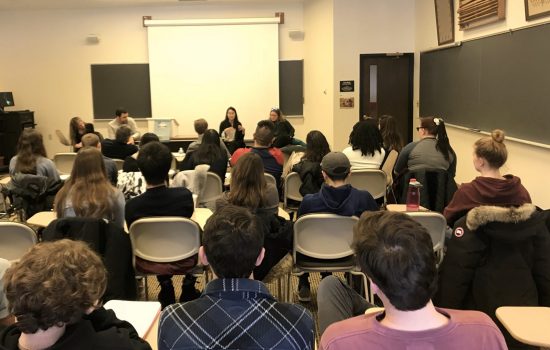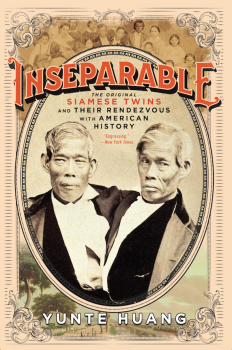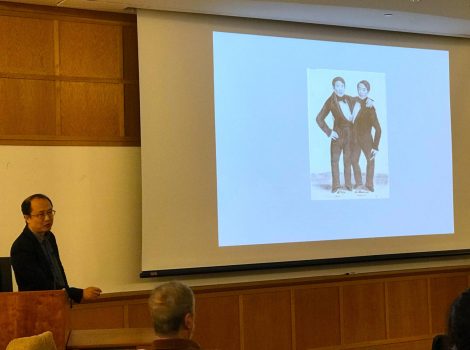On April 5th, for its second History Conversation of the Spring 2019 term, the History Department hosted an event for current students wanting to learn more about where a history degree can lead. The event featured four recent Colgate History alumni, Carrie Blackmore (class of 2008), Morgan Nevins (2010), Sohee Ryuk (2015), and Jack Schnettler (2015). These alumni returned to Colgate to share their experiences and insights into where a history degree has taken them. Each gave a short talk about their careers and how a history degree has (or has not) been relevant to the paths they chose.

Each of the alumni provided interesting perspectives for current History students, stressing the value of the writing, verbal presentation, and organizational skills they developed as History majors. Carrie Blackmore (’08) founded a thriving business, Good Nature Brewing, in the years after graduation. While one may not immediately come to the conclusion that a history degree and brewery entrepreneurship would go hand in hand, Carrie explained that the skills she developed studying history have truly helped her to navigate the complexities of being a business owner. The rigorous coursework and skills she developed during her time at Colgate have helped her with everything from writing a business plan proposal, to the day to day challenges of entrepreneurship.

Shortly after graduation, Morgan Nevins (‘10) joined the Peace Corps and worked as a community health volunteer in Mozambique. Upon returning from the Peace Corps, she worked as a program officer in a global nonprofit international health care organization. Morgan learned, both during her time abroad and in the workforce, that being able to analyze current details while also the larger historical context is essential to tackling current issues. With an interest in social justice and humanitarian aid, Morgan is currently studying at Columbia University, where she is a dual degree master’s candidate in Social Work and International Relations.
Sohee Ryuk (’15) who double majored in History and Psychology, shared that History has continued to be a driving force in her life after Colgate. After graduation, she was awarded a Watson Fellowship, and spent a year traveling Eastern Europe and Central Asia, exploring how ethnic identity was expressed in areas of oppression, and the policies surrounding these ethnic minority groups. From the time of her London History Study group, Sohee knew that she was interested in exploring these themes. After her Watson fellowship she spent some time working in educational consulting, but ultimately decided to get back to her passion for history, and is currently a PhD candidate in History at Columbia University.
Since his graduation, Jack Schnettler (’15) worked as an intern, and later staff assistant in Washington, D.C. for two U.S. Senators, and is currently getting a degree in public policy at the Harvard Kennedy School. Jack stressed the importance of writing and communication skills in the workforce. He explained that learning how to synthesize information, and write compelling arguments during his history studies has been essential to the successes in his professional life.
While these four alumni have had very different experiences, it was clear that the foundations they built during their time as History majors at Colgate have allowed them to excel in their career paths and pursuits.




